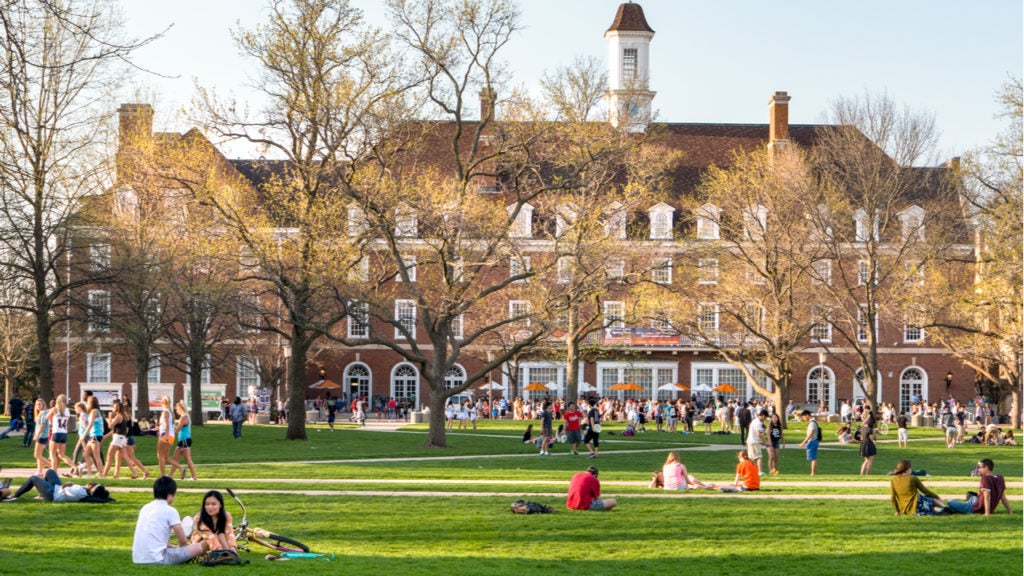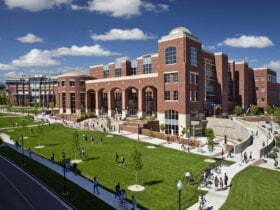An astounding number of students start university in America without finishing it: Roughly forty percent of university enrollees don’t go on to get a diploma within six years of beginning to work toward one. The accurate information is that in the latest many years, matters are becoming less terrible. By one calculation, at four-12 months in country schools that didn’t make the pinnacle 50 public universities in U.S. News & World Report’s ratings, the commencement price within six years rose from about 40 percent for students beginning inside the early Nineties to approximately 50 percent for students starting in the late 2000s. (The phenomenon becomes not restrained to non-elite colleges.)
When Jeff Denning, an economist at Brigham Young University, began searching intently at the facts on university-of-entirety quotes, he changed into a chunk confused by using what, precisely, turned into using this uptick. He and a number of his BYU colleagues observed that various signs from the one’s decades pointed in the course of lower, no longer higher, commencement charges: More traditionally underrepresented businesses of college students (who generally tend to have decreased graduation rates) were enrolling, students appeared to be reading much less and spending greater time running outdoor of faculty, and scholar-to-college ratios weren’t reducing. “We started thinking, What may want to explain this boom likely?” Denning instructed me. “Because we had been caught with now being unable to explain whatever.”

More Stories
Stuck, this is, until they commenced searching at what was happening with college students’ GPAs. Despite the trends above, many of the university-going population college students had been, in common, earning higher grades in their first year of university. “[GPAs are] going up, and as first-class we will inform, there’s not an amazing purpose that they’re going up, in phrases of scholar conduct or training or something like that,” Denning stated.
If grades are enhancing, however, there’s no cause to suppose that students have become better students, a thrilling opportunity is raised: The unassuming, instructional way Denning places it in a recent paper (co-authored together with his BYU colleague Eric Eide and Merrill Warnick, an incoming Stanford doctoral pupil) is that “standards for degree receipt” may additionally have modified. A less measured way of saying what that means: College may also become easier.
Christina Ciocca Eller, a sociologist at Harvard who studied higher schooling and wasn’t involved with Denning’s studies, points out that “less difficult” should imply a couple of various matters. College ought to become simpler in the experience that it provides college students with less complicated cloth than before or because it affords college students with comparable material within the beyond but grades them extra forgivingly. “I without a doubt think that the latter explanation, about grade inflation, is greater conceivable,” Ciocca Eller informed me. However, she additionally noted that the college-has-gotten-easier hypothesis is not definitive.
Denning himself cited this, too. He is known as the paper, which hasn’t yet been posted in a peer-reviewed academic journal, “a primary stab”—exploring a question he welcomes different researchers to check out. He said it should well be the case that “schools are simply higher at supporting students” than they used to be. Indeed, many faculties have launched initiatives to assist more fabulous students in graduating. Still, the effectiveness of these packages varies, and Denning stated he no longer has particular enough records to research their role in growing commencement fees nationally.
Whatever is chargeable for the growth seems to serve the wishes of faculties and universities, mainly free ones. Lately, Ciocca Eller said, faculties are held extra liable for their graduation prices, with some states tying educational investment to certain statistical benchmarks. “Potentially, there’s pressure on the college to assist college students, in particular, underprepared college students, to transport them through the curriculum for you to preserve churning up the graduation fee,” she stated.
Denning and his co-authors mentioned this possibility, noting in their paper that altering what’s vital to get a diploma is “the lowest fee way to increase commencement charges.” But faculties’ excellent use of this tactic, aware or no longer, is just guessed at and far from verified.
Indeed, the underlying purpose of this commencement-rate growth is a mystery. David Kirp, a professor at UC Berkeley and the writer of the impending ebook The College Dropout Scandal, says a group of different viable explanations for it. Maybe college has certainly gotten more comfortable. But maybe excessive colleges are churning out higher-prepared graduates, and college students have begun arriving more geared up for the cloth on campus. At this point, Kirp wrote in an electronic mail, “We simply don’t recognize.”
One knock on the getting-simpler concept, he stated, is that colleges that permit incomparable styles of college students can have appreciably extraordinary graduation rates—that can indicate that a person’s college’s pupil-assist tasks depend, or as a minimum, that better training isn’t getting much less rigorous in any uniform way. “My strong stoop is that a couple of elements are working here,” Kirp wrote.
Ciocca Eller noted a few different caveats. For one, she’d like to see researchers look at the function of other, higher granular variables than the ones Denning and his co-authors looked at; in her eyes, their analysis doesn’t present “a full photo.” She also advised that specializing in aggregate data can conceal the frequently stark disparities among students with particular racial and socioeconomic backgrounds. Perhaps reading about students’ unique businesses could be more fruitful than a broad view.
But the mere fact that researchers aren’t positive about all this increases a more significant question of how stressful college is or has to be. “I suppose people interpret this as a horrific issue, or as a minimum, if the university is easier, that’s a failure,” Denning said of his paper’s notion. “And it’s not clear to me that that’s genuine.” Maybe college is too tricky and must be made simpler. Perhaps the other is authentic. Either way, Denning likes to reflect onconsideration on difficulty as something that isn’t constant and can be purposefully tweaked. “You can select what the grade distribution seems like at your college or your department … and those can have consequences on stuff that we care about, like graduation [rates],” he said. Colleges, in different words, get to determine what it manner to deserve a degree.
Of direction, there are other ways to enhance commencement quotes. Ciocca Eller indexed some of them: committed, individualized advising early on that enables not-sure college students to learn about the diverse pathways open to them. Dedicated, personalized advising later on that facilitates them with challenges precise to their principal or music. Credit-bearing educational-support packages that help students who’re suffering. Setting up cohorts of students at commuter colleges who can help each other out while, say, one of them has to overlook a category. Giving low-profit college students a little cash to assist in paying for textbooks and transportation.
“We recognize a lot about what works—like so, so, so, tons—that it’s simply honestly surprising to me sometimes how long it takes even to put in force the lowest-placing fruit,” Ciocca Eller said. Kirp, too, lists fixes in his upcoming ebook, consisting of enhancing remedial classes that many students fail and supporting promising low-earnings students to discover better-resourced colleges that they may not have taken into consideration plausible. These things might take some work. However, they’d impact significant exchange, supporting higher students graduate—whether or not doing so is simpler or no longer.














